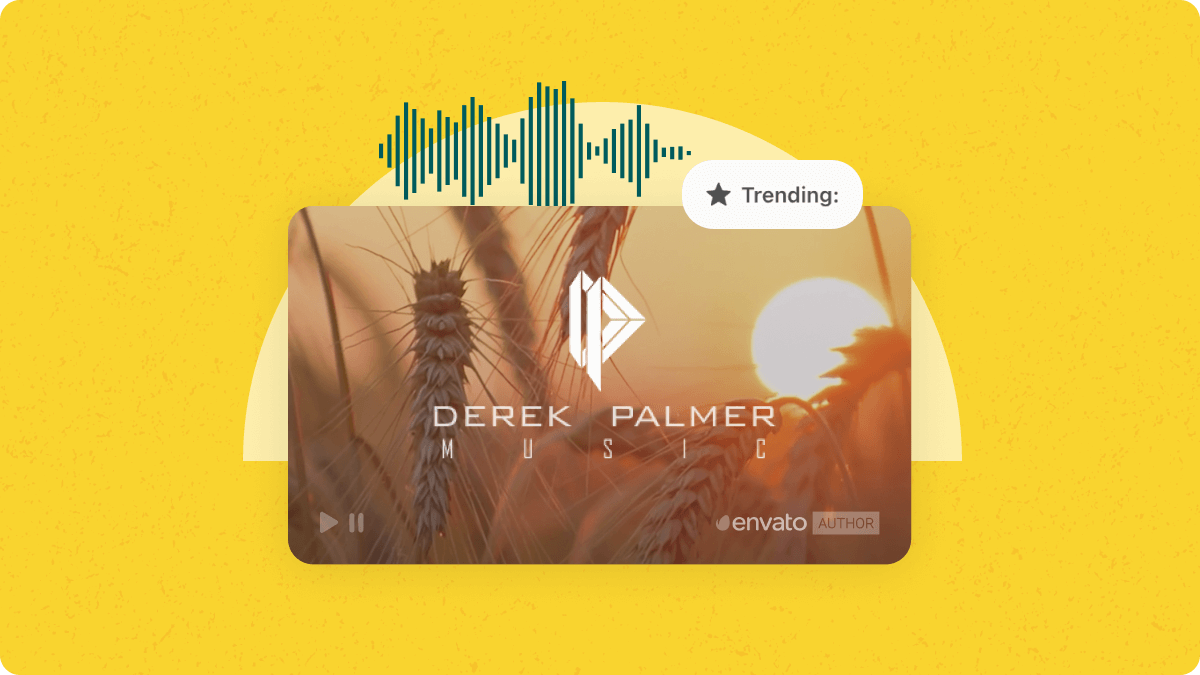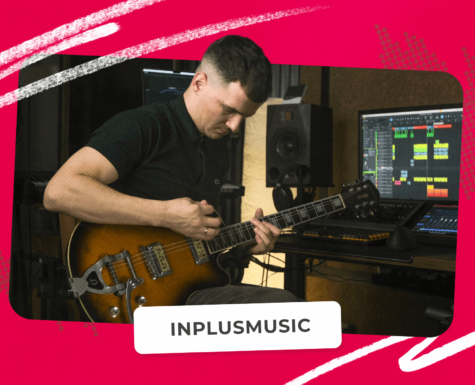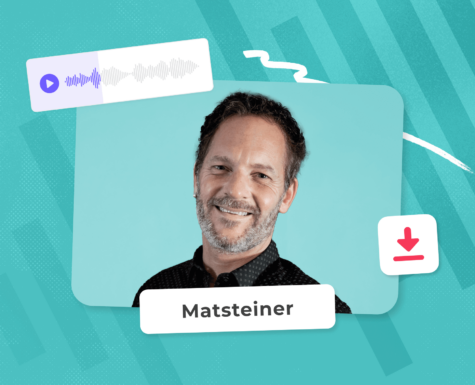How to Make Music For Movies With Derek Palmer: Part 2

Derek Palmer—AKA palmtreep—is a freelance film composer, musician, electronic music producer, and DJ from the United States. His work spans a multitude of genres ranging from film scoring (AKA music for movies), and trailer music to EDM dance music.
From featuring in video games and movie trailers and working with big clients like Universal Studios, palmtreep has shown what is possible for aspiring composers.
In part 1 of our how to make music for movies series, Derek talks about the benefits and challenges that he faces in the industry. In part 2, he reveals his favorite tools and techniques, his musical inspirations, and his top tips for creating in this field.
So, without further ado, step into the musical world of Derek Palmer…
How would you characterize the role of music in film?
The role of music in film is essential to the film as a whole. Music has this wonderful aspect to it of being able to make you feel emotion without specifically seeing it. Music can take any scene and can magically change the feel from happy to sad to heroic or terrifying.
One aspect that I love about music in film is how it can emphasize something that isn’t even on screen yet. Horror films are a perfect example of this. Hearing an unsettling soundscape that implies something is just off-screen. And on the flip side of that, for action movies, the fast-paced music can help showcase the intensity and chaos going on during a car chase or a fight scene. Another example could be an emotional scene, maybe something sad has happened and all you need is that very quiet violin playing to help the audience feel the sadness your character is going through. Without it, it wouldn’t have as much impact.
Music is one of the pillars of a good film. It helps the emotional context of the film. It helps the atmosphere of the film and in some scenes, it could be a driving factor of a film.
How do you make a good movie soundtrack? What is the process?
The start of writing a new score is always a terrifying one. Staring at a blank “page” so to speak. The process differs depending on what I’m doing. If I’m writing something for a specific film or if I’m writing trailer music to put on Envato, the processes are a bit different. But they all start with a blank page.
The first thing I do is create a startup template with most of my most used things set up and ready to go. I spend a good few days every few years making a startup template solely for the purpose of helping me not spend extra time routing things and naming/organizing things.
At this point, I’ll load up a simple piano and just play around with ideas. Trying to imagine what the overall sound could end up being. A piano is how I start every song. If I’m scoring to film, then I will watch the film a few times, take notes of what the directors/producers have told me they’re looking for, and start coming up with a general idea.
Once I come up with a theme or an idea, I’ll flesh it out with very basic orchestration. Maybe a few strings or brass. Then I will send it to the directors to see if they like the idea. If they do, then I go ahead and run with the idea and begin scoring accordingly. Throughout this process, I’ll send demos to the director for feedback. Sometimes they think it sounds great, and other times they want some edits and changes, so I will do my best to accommodate those.
Another key aspect I try not to do is make things too complicated. Think of some of the best music scores. The main themes and ideas are fairly simple in nature. Once you start overcomplicating things or introducing too many things at once, the music just breaks down into noise. Which is never what you want to do. Keep it simple and layer on top of that or support that idea.
Do you ever get creative block and how do you deal with it?
Sometimes I’ll have trouble coming up with an idea. If that’s the case, I’ll take some time and just look up some film scores that are in the same realm. Sometimes this can help give you ideas and set you in the right mindset. Then come back and try to write some ideas down again.
The best thing about music writing is there’s really no real wrong way to do it. But it always starts with a blank page and a simple idea.
What main programs, tools or techniques do you use to create your work?
This is a bit of a loaded question as all of these are ever-changing. There are a few constants, however. I currently do all of my work on FL Studio. I did invest in Cubase, but that was new and I haven’t had the time or chance to really dive into it just yet. So that is on the list to learn. I also use iZotope Ozone for mastering purposes as well as Sound Forge. It’s a really great tool with a lot of good modules. And then there’s a slew of free effects modules that are actually quite great in what they do.
In terms of sounds and libraries I use, it’s a huge list but I use things from most of the top players in the orchestral sampling space like EastWest, Spitfire Audio, Heavyocity, 8Dio, SoundIron, Audio Imperia, and Orchestral Tools. Each company provides tons of music libraries to choose from and numerous sounds.
My main orchestra library is from East West with their “Hollywood Orchestra” series. I’ve used it for years and while some sounds are dated, it’s not failed me yet. I do have other string and brass libraries that I use with these so it’s all a bit mix and match sometimes. On occasion, I’ll use a string section from 8Dio’s “Anthology” collection, or recently I purchased some sounds off “Junkie XL Brass” from Orchestral Tools.
As for solo instruments, by far my favorite library has to be “SOLO” from Audio Imperia. The detail and fluidity in some of the sounds are unmatched with others. The solo vocal is amazingly beautiful and I use it all the time.
One thing I can point out is the use of tutorials or walk-through videos of other composers. Tom Holkenborg (aka Junkie XL) has a fantastic series called Studio Time where he runs through some of his big scores. It’s a great way to learn some new techniques or ideas and use them in your own compositions. There is always something to learn so looking at walk-throughs is a great tool in that aspect.
You’ve worked with some big clients like Universal Studios—what work did you create for them and how was it working with such a big name in the industry? And can you provide other examples of where we can find your work?
Sometimes you’ll get notified that a client has used your work for something or licensed it for a project, but you don’t always know what it was used for. Unfortunately, this was the case with Universal as well as the US Army. They both licensed a track I wrote but neither actually contacted me to specifically say what for. I do know they were both used for some type of promotional material. Most likely a trailer or promo video.
That’s one thing I’ve learned while doing trailer music. You don’t always know all the details regarding something when it’s licensed. Sometimes a client will let you know beforehand. For example, I did some music for a client who ended up using it for a professional hockey promo during a playoff game. I was even sent a home-recorded video clip of the promo airing that the stadium with over 11,000 people there—which was pretty cool. I would however love to find exactly what Universal did as that was a huge thing for me.
I’ve done quite a few short film works in the past few years as well. As mentioned elsewhere in this article, most of those were horror-themed films. I’m not exactly sure if these films are showcased elsewhere but I do feature all my film-scoring work on my YouTube channel.
Cinemassacre
Another example was the company of Cinemassacre. They are mostly known for a series on their YouTube channel called “Angry Video Game Nerd”. Which if you don’t know is a parody video series that showcases the main character called the nerd, playing bad video games. But there’s always a story or skit to go along with it. It’s a fairly well-known series and channel and the opportunity came to be able to work with the creator on a video. I created a custom-made soundtrack for his short film and had the challenge of taking 8-bit video game music and transforming it into a full-fledged orchestral score.
Other places
There have been other clients I’ve worked with that have shown me what they used things on. Rocky Mountain PBS, for example, used a song of mine to advertise their park and activities. EPN Games used a song of mine for a trailer for one of their games.
Who are your inspirations in the music industry?
This list could literally be a mile long. But the top of the list for me would have to be the great John Williams.
John Williams
Every composer knows of him and every composer knows what he’s done in his career. As one could say “There’s John Williams, and then there’s the rest of us”. As stated in my opening passage, if it wasn’t for John Williams’ music, I may not have even gotten interested in film music. So he’s at the top of my list.
Michael Giacchino
If there was ever a man who could come close to doing some work even remotely similar to John Williams, it would be Michael. Some of his recent works have been absolutely amazing. The Batman score was already a hard one to crack since it’s been done a few times already, but he managed to encompass a new idea and “life” in it. From Jurassic World to Spider-Man showing his range and his most recent work on Marvel’s “Werewolf By Night”, there’s no slowing down for this guy.
John Powell
Someone slightly newer than John Williams, but just as powerful. His score for “How To Train Your Dragon” is some of my favorite film scoring as of late.
Danny Elfman
Danny Elfman is also a favorite. While he may not have as big of an impact as John Williams, what sets Danny apart is he didn’t start out as a film composer. He was in a literal rock/pop band. He then scored Batman ’89 and now he’s one of the top guys in the business doing film work. I love his quirky style. You can usually instantly spot when it’s a Danny Elfman track. I will also comment that he scored the music to my favorite film, “The Nightmare Before Christmas”.
Hans Zimmer
Hans Zimmer is one of the greats, and he has done some exceptional work. I also almost prefer some of his collaborative efforts. Such as documentaries like “Prehistoric Planet”, “Frozen Planet” and “Planet Earth”. Of course, there’s also the work he did for Batman v Superman and his collaborative works with Junkie XL on Wonder Woman’s theme.
There are just too many to list that I look up to and follow closely. A lot of great composers out there. Tom Holkenborg (Junkie XL), James Newton Howard, Henry Jackman, Harry Gregson-Williams, Howard Shore, Alan Silvestri, Brian Tyler, Bear McCreary, Blake Neely, and John Debney just to name a few more.
How is Envato a useful tool for creatives?
I think Envato is an invaluable asset for creators. Not just for people in the music field like myself, but for anyone in the creative field. I’ve been on Envato for quite some time and for the past year I’ve been on Envato Elements as well.
The fact that you can go and find items and assets to help your creative goals with such ease, it’s fantastic. For someone like myself making a movie trailer or promo video for one of my releases, I can go in and find amazing quality video clips to use, I can go and find customized fonts for logos or one of my favorite things is finding unique Photoshop styles I can throw on to some text design to make some cool cover art for my new songs. Sometimes I’ll go through and get some After Effects trailer title treatments if I’m in a rush and don’t have time to make my own.
What are your top tips for other freelance musicians, film composers, or creatives wanting to make a career from their work?
This is a tough question to answer as there are so many variables to it. I think the first thing I have to say is to not give up and keep creating. The hardest part is not seeing results fast. Now, I know not everyone has the same story. Some of us have gone to school and learned things for years and decades, others are venturing out for the first time without much in terms of experience.
Don’t get discouraged if you don’t see a ton of plays or views at first. It takes time, hard work, and passion. It won’t happen overnight.
Make sure to showcase your work. For example, I have the typical social media pages, but for me, YouTube and Soundcloud are two very important roles in terms of showing my new music. Once you start getting more involved you could possibly get a brand going for yourself (making yourself a logo or a tagline). Making a home website is also a good option when you get to that point.
Don’t be afraid to admit you don’t know something. I’ve been writing music for decades now and I still look up tutorials and look at analyzing videos. I’ve signed up for classes and have gone out of my way to watch other composers and music producers do their craft. There are zero negatives to learning new things, only positives.
Keep the focus on what you want to create, not what others are doing. Focus on you. Make your music, or video, or whatever it may be. If you spend too much time worrying about what is “popular” or “who is doing better at what”, you’ll never get anywhere and spend all your time thinking you’re playing catch up instead of doing what you enjoy doing.
Make sure you enjoy what you’re doing. Being creative isn’t always easy. But knowing you love what you do helps when things don’t seem to be moving very quickly.
If you’re not enjoying the creative work you’re doing, you can’t put your all into it. Not everyone needs to make a big orchestral trailer track. Maybe you enjoy doing quirky jingles or making EDM-styled music. If that’s the case, do that! Art shouldn’t be forced. It shouldn’t be a must, it should be a passion. If we can’t put all of ourselves into our work, what are we really doing here? So my advice is to do what you enjoy. Do what you love. And make sure you love to create.
Feeling inspired by palmtreep? Check out part 1 of our how to make music for movies series, where he reveals the steps to becoming a composer, and the benefits and challenges that he faces in the industry.






